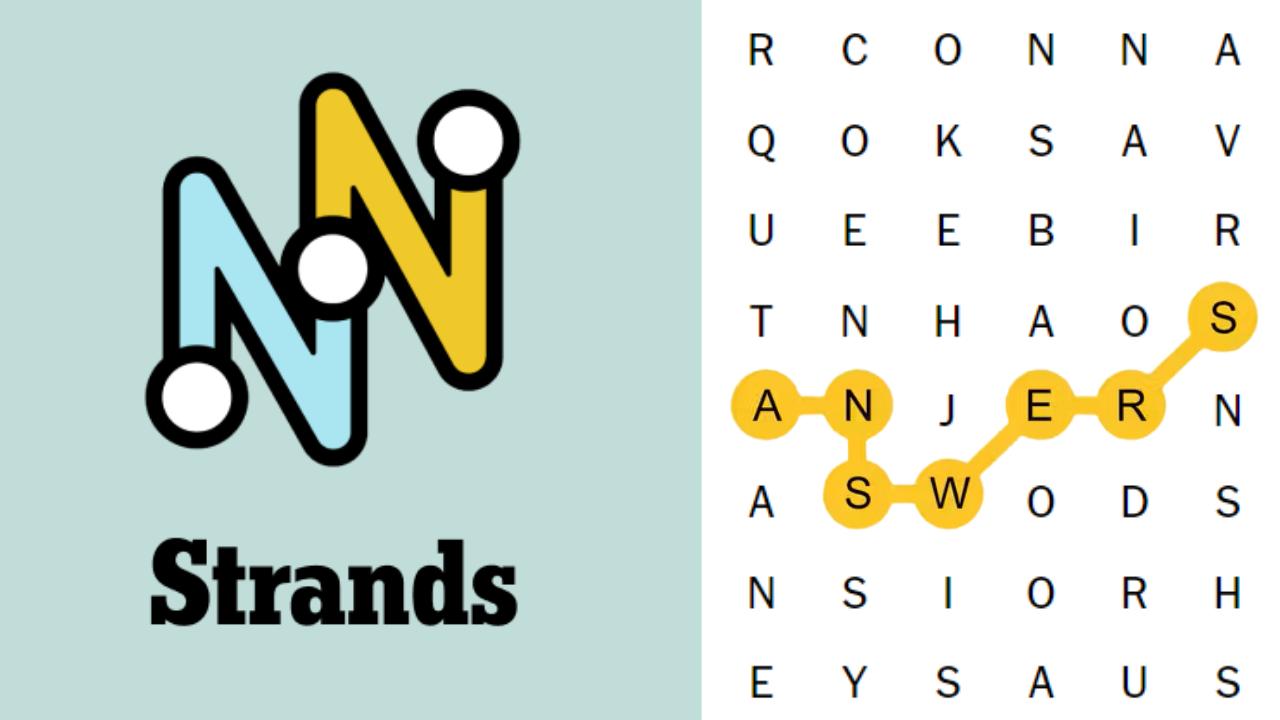Once AI reaches artificial general intelligence (AGI), some believe that AGI will devise a new … More
In today’s column, I examine an intriguing speculation that once we advance AI to become AGI (artificial general intelligence), doing so will spur AGI to devise a new universal natural language for humanity to adopt, which then radically reshapes how we think and act. It is definitely an outside-the-box proposition and deserves a moment of keen reflection.
Let’s talk about it.
This analysis of an innovative AI breakthrough is part of my ongoing Forbes column coverage on the latest in AI, including identifying and explaining various impactful AI complexities (see the link here).
Heading Toward AGI And ASI
First, some fundamentals are required to set the stage for this weighty discussion.
There is a great deal of research going on to further advance AI. The general goal is to either reach artificial general intelligence (AGI) or maybe even the outstretched possibility of achieving artificial superintelligence (ASI).
AGI is AI that is considered on par with human intellect and can seemingly match our intelligence. ASI is AI that has gone beyond human intellect and would be superior in many if not all feasible ways. The idea is that ASI would be able to run circles around humans by outthinking us at every turn. For more details on the nature of conventional AI versus AGI and ASI, see my analysis at the link here.
We have not yet attained AGI.
In fact, it is unknown as to whether we will reach AGI, or that maybe AGI will be achievable in decades or perhaps centuries from now. The AGI attainment dates that are floating around are wildly varying and wildly unsubstantiated by any credible evidence or ironclad logic. ASI is even more beyond the pale when it comes to where we are currently with conventional AI.
Language Shapes Our Thinking
Let’s shift gears and mull over the role of natural languages in our daily existence.
I’m sure you’ve heard or read that natural languages tend to shape our thinking processes. The idea is that whatever language you happen to know impacts what you are able to think about and how you process mental considerations. The classic example is the claim that Eskimos have a multitude of words to represent ice and snow. This in turn enables them to think about ice and snow in ways that others lacking those words might not conceivably do.
This strident belief that languages shape our thinking is referred to as the linguistic relativity hypothesis, which is also informally known as Whorfianism, see my detailed discussion at the link here.
There is a bit of controversy associated with whether the claim about the language of Eskimos is fully accurate on this matter, but the crux is that languages being able to shape our thinking seems intuitively sensible and logical. If you meet someone who doesn’t know a particular word, you’ve probably had a difficult time conversing on the topic at hand. You might have to figure out other ways to express the matter. They could lack an entire semblance of a concept or aspect of life that hasn’t yet dawned on them, partially since their language doesn’t express the matter or they’ve not encountered an equivalence in their language.
Devising A Universal Natural Language
Imagine that you could develop from scratch a new natural language that humans might find useful to adopt.
This somewhat happened back in 1887 when Leyzer Zamenhof created a new natural language called Esperanto. He hoped to have everyone adopt a new language that would cause people to feel more connected with each other and readily able to communicate with each other. The United Nations many years later in 2017 noted his support for intercultural dialogue and around that time an estimated 2 million people were speaking Esperanto. That’s obviously a drop in the bucket when you consider there are around 8 billion people on Earth, but it’s kind of amazing to realize that some people still embrace his devised language.
It is an uphill battle to get people to switch over to a brand-new language. First of all, if not many other people speak the language, why should you use your time and energy to learn it? Very few others would be able to interact with you in that language. Worse still, maybe the language will ultimately fizzle out and you’ll be left with a dead language in your head that doesn’t seem to do you much good.
Another qualm would be that the language might not express things that you already know, versus based on whatever other languages you are fluent in. It would be exasperating to learn another language and feel jammed up that you cannot fully express yourself. You would tend to revert to the languages you already have squarely in hand.
All in all, a brand-new language would have to possess some really compelling facilities to get people to avidly adopt the language.
AGI Enters Into The Big Picture
You are ready now for the big reveal on this mind-bending topic.
Suppose we advance AI to become AGI. AGI then looks around and decides that the prevailing natural languages that humans have devised are not as robust and insightful as they could be.
Humans have merely stepwise crafted new languages and have never completely been willing to give a shot at crafting a language out of the blue that would essentially be the pinnacle of all feasible languages.
To clarify, this wouldn’t be an exercise in simply coming up with a new language for the heck of it. There would be a grand purpose involved. The brand-new language would be intended to foster thinking in humans that is beyond our conventional thinking. Human-devised natural languages are holding us back. We don’t realize this. Meanwhile, AGI does realize this.
So, AGI opts to create a new natural language for us. The AGI is doing what it can to aid humankind and further our intellectual progress. Happy face.
Humans Love Or Fear This
One potential reaction by humankind is that we don’t want a brand-new language. We are perfectly fine with the languages we already have. A new language would be burdensome. The effort to learn the language and put it into everyday use would require a lot of human time and cost. We pat AGI on the head and say thanks, but no thanks.
Some might also be highly suspicious of the new language.
The worry goes like this. Maybe AGI wants to have ultimate mind control over humans. A sneaky and clever way to do this would be to saddle us with a language that the AGI somehow can manipulate to its advantage. If we all adopt the language, it could be a massive trap. The AGI has now got us right where it wants us. Sad face.
You can bet your bottom dollar that a huge amount of scrutiny would go into inspecting the brand-new language. Governments might warn to avoid learning the language until the needed assessments have been completed. Others would undoubtedly rush to learn the language, despite any warnings by authorities, since the assumption is that knowing another language can’t really hurt anyone.
A notable concern would be raised about the possibility of babies learning this brand-new language, doing so before they’ve learned a tried-and-true human-devised natural language. In other words, suppose a baby in a household that speaks only English is first introduced to this new language before they are versed in English.
Could this alter their thinking processes and if so, would that alteration have a lifelong impact, and be a good thing or be a disaster for them?
George Orwell said it best: “But if thought corrupts language, language can also corrupt thought.”
AGI Defends The Language
Presumably, AGI would outrightly indicate why humanity is going to greatly benefit by adopting the new language. In an Eskimo language aspect analogous way, the AGI might explain that if we learn the new language, we will have a vocabulary that will expand our existing way of thinking. Doing so will put us on an even playing field with AGI.
Perhaps breakthrough discoveries and inventions will be much more likely by humanity due to humans adopting the new language. Peace on Earth might be more probable because everyone speaks the same language and has the same collective understanding. It is like Esperanto on steroids and fully backed by the already impressive AGI.
Consider the rollout aspects.
At first, nearly everyone who learns this brand-new language would be doing so as a second language (or third, fourth, etc., depending on how many languages someone already knows). The world isn’t going to suddenly change over to a new language in the blink of an eye. People would be speaking their other tongues and also using the newly crafted language.
Eventually, assuming that the new language is truly that powerful and beneficial, the expectation would be that all other natural languages would fade out. Scholars would keep those languages around merely for historical purposes. Nearly 100% of the world would be using the new language and rarely ever resort to one of the then-considered retired languages.
Structure Of The Language
What would such a brand-new language look like?
One viewpoint is that the language would have to resemble the natural languages that we already know. This would make it easier to adopt and a lot less challenging to learn. If the new language consisted of some strange-looking concoction, perhaps all numerical in its substance, it seems doubtful that widespread adoption could take place. People just wouldn’t be able to grasp it.
We also need to consider how the language works in both written form and when spoken aloud. Imagine for example that the new language was easy to write down but extremely hard to use via the spoken word. That’s a problem. Getting the language to be widely adopted would have to appease both the writing aspects and the speaking aspects.
AGI is faced with quite a tough puzzle. The new language must generally conform to existing or known natural languages if it is going to be widely accepted. Meanwhile, the new language is supposed to have a compelling basis for adoption, such as expanding our minds and reshaping our thinking processes.
It is a tall order, that’s for sure.
A contrarian perspective is that it would be fine if the brand-new language was hard to adopt. Even if the language doesn’t resemble our existing languages, no worries, since humans are adaptable and would adapt to this new language. The key is whether overcoming the barriers to learning the language was worth the benefits that would accrue.
What We Gain And We Lose
Contemplate the impact that having a universal natural language might have on human customs and culture. Some dread the idea that this would almost inevitably neutralize our differences and make us entirely homogenous. Everyone speaking and using the same language would potentially lead to a unitary way of thinking and acting.
It is almost as though we have become staid robots.
Not everyone believes in that doom-and-gloom outcome. Perhaps we could still retain culture and customs, even if using the same across-the-board language. There isn’t an axiomatic reason that we must be the same merely due to using the same language.
One of the most exciting aspects of the brand-new language is that it might portend a kind of tipping point for human cognition. This can be likened to a linguistic singularity, whereby humankind demonstrably leaps forward in our intellectual prowess. This is done without having to do implants into our brains. Nor do we need to wait thousands of years for evolution to gradually adjust our noggins.
For now, I’ll give the last word on this hefty topic to Nathaniel Hawthorne: “Words — so innocent and powerless as they are, as standing in a dictionary, how potent for good and evil they become in the hands of one who knows how to combine them.”
Will we accept an AGI-devised language? Then again, maybe we will implore AGI to devise a new language and open Pandora’s box of our own volition.








